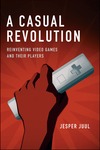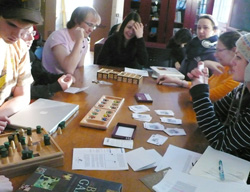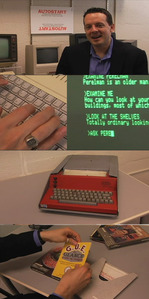Composer Pauline Oliveros joins us in our weekly variable_d salon via the
Dialogues. In Dialogues, students and members of the community come with ideas, themes, and questions and engage in a teleconferenced discussion of contemporary issues in the work. Past visitors have included Brenda Laurel, The Guerrilla Girls, and Katherine Hayles.
4pm, Jan 26th 2010
Tiltfactor lab
Additional links to Oliveros’ artifacts:
http://www.youtube.com/watch?v=G9GJCL3PpYA
running electric charges through herself
http://www.youtube.com/watch?v=gpJ2JjZhcFI
Pauline Oliveros, composer, performer and humanitarian is an important pioneer in American Music. Acclaimed internationally, for four decades she has explored sound — forging new ground for herself and others.
This is a preview of
var_d, pauline oliveros visits january 26
.
Read the full post.


 EIS PhD student Teale Fristoe spent last summer at Microsoft Research
EIS PhD student Teale Fristoe spent last summer at Microsoft Research 






